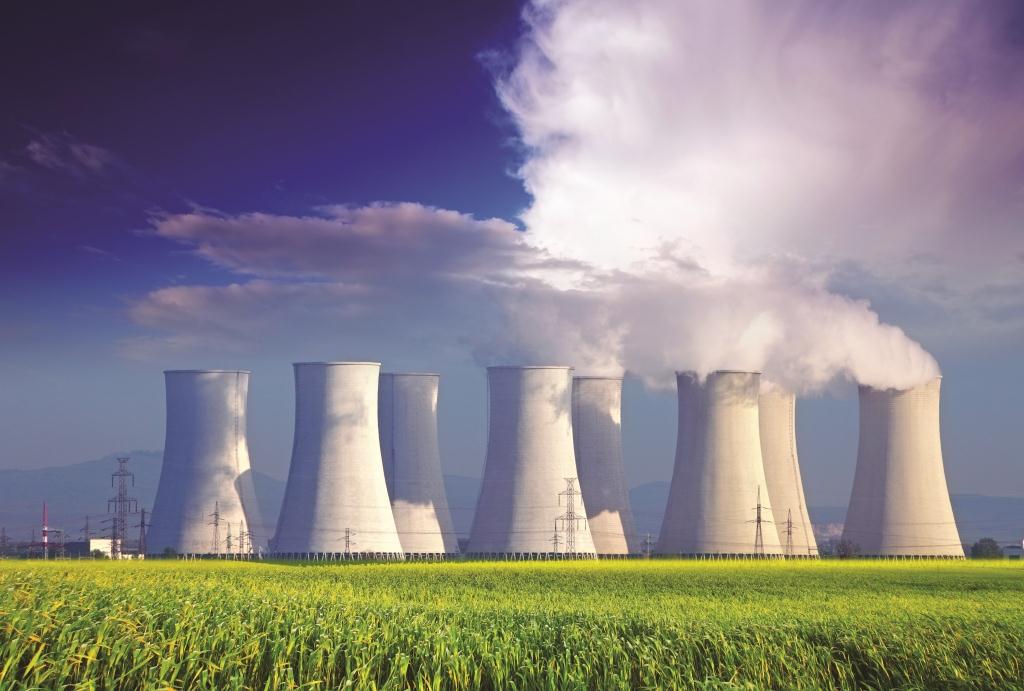Building nuclear power stations in South Africa could benefit other industries that are in dire need of a leg-up.
South Africa’s cabinet has kicked off the Nuclear New Build Programme (NNBP) to get an initial 9,600MW of nuclear power which, according to President Jacob Zuma and Finance Minster Pravin Gordhan, “will be built on a scale and at a rate the country can afford”.
The cost of obtaining this much power will be around $40 billion to $50 billion over 15 years.
Contrary to the view of naysayers, the nuclear power lifetime cost is lower than most technologies. It is also the leading global baseload renewable energy source, topped up with hydro, clean coal independent power producers (IPPs), wind and solar.
The Department of Energy’s strategy has been to engage with nuclear vendor countries, and not only nuclear power plant (NPP) original equipment manufacturers, as they did in the failed 2007 process. Agreements have now been signed with five nuclear vendor countries – France, Russia, South Korea, China and USA/Japan.
Loading...
These countries are able to supply modern pressurized water reactor (PWR) NPP technology, funding, construction and localization development strategies. Some offer fuel supply and fuel waste management support. These partnerships will last 100 years if you consider the full cradle-to-grave lifecycle of the modern NPP.
Government intends following a transparent procurement process, which will be placed into the IPP Office. This office is currently responsible for the successful renewable energy, baseload coal, and gas to power IPP programs.
“Only once nuclear vendors had entered their bids would South Africa have an understanding of what are the different cost levels [and] what type of technology is available… So it’s going to be a year, or two, or more before we can definitely say how long, how much and over what period of time we are going to be managing this program,” says Gordhan.
The principle vendor countries, and their own domestic technology companies, will look to share risk through international alliances and to embed a strong local content into their offering. This will provide support and funding for broad-based black economic empowerment (BBBEE), the construction and manufacturing sectors, and black industrialists.
Such Sino-Franco partnerships have been successful in building the Taishan NPP in China and the Hinkley Point C NPP in Britain, so watch this space.
South Africa’s nuclear readiness and localisation is an important issue for the initial 9600MW and could range anywhere from 20% to 40%, depending on how advanced the country’s readiness strategy is and its intentions for developing a flourishing nuclear knowledge economy.
South Africa has a proud heritage in power generation construction across all the primary energy technologies, but is now coming off a 2010 construction boom, with a big coal build now rapidly tailing off. The country’s embattled construction sector will be challenged to prepare for a nuclear build program without a well-thought-out and structured national strategy. We need to keep the momentum gained for the foreseeable future.
An early dialogue between the engineering and construction fraternity, the manufacturing sector, government and labor is therefore crucial to devise an incorporated plan for the NNBP. This plan will need to give South Africa about five years to ready itself to ramp-up into the investment and localization of the NNBP and will have to be sustained for at least the following 10 years.
The potential is for over 20,000 construction jobs to be created and a similar amount in the manufacturing and supply to the NNBP. Without a plan, the opportunity will be lost to foreign jobs and higher imported content for the NNBP.
Many industry players could be activated when the NNBP is announced. Supporting infrastructures will be a great stimulus for the local communities near the selected NNBP sites in the Eastern and Western Cape provinces. Currently the local talent pool is small. Group Five and Lesedi Nuclear Services are the only private sector companies currently fully active in the nuclear industry.
In the public sector, the South African Nuclear Energy Corporation (NECSA), Denel, Eskom and the National Nuclear Regulator (NNR) will have major roles in the establishment of the NNBP and in the supply to and execution of the projects.
Loading...
